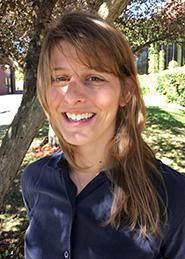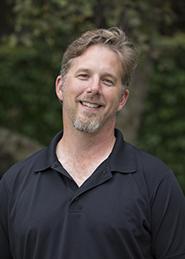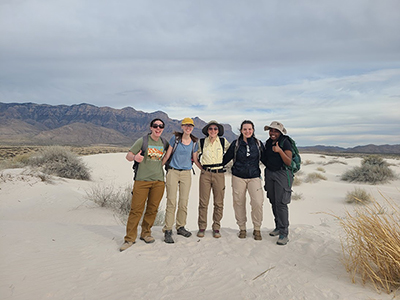Project Overview
The goal of this project is to gain a better understanding of how carbon cycled through the atmosphere, oceans, and sediments in deep time. We will accomplish this by describing and analyzing rocks that formed in shallow marine environments in order to understand the processes that were active when they were being deposited, the details of the environments that they formed in, and using this information to reconstruct sea level history. This paleo- environmental analysis will be paired with stable isotopic analysis of the carbon contained in the rocks in order to reconstruct how the global carbon cycle changed through time.
Faculty Bios
 Dr. Page Quinton is a stable isotope geochemist that studies the connection between the carbon cycle, ancient climate change, and major mass extinction events. Recent work has included research focusing on the role of climate change in the Dinosaur Mass Extinction Event, understanding the impact of early land plants on shallow seas, and understanding the connection between sea level change and carbon cycling. This work has taken her to Australia, Canada, all over the US (Montana, New Mexico, and Texas.. to name a few).
Dr. Page Quinton is a stable isotope geochemist that studies the connection between the carbon cycle, ancient climate change, and major mass extinction events. Recent work has included research focusing on the role of climate change in the Dinosaur Mass Extinction Event, understanding the impact of early land plants on shallow seas, and understanding the connection between sea level change and carbon cycling. This work has taken her to Australia, Canada, all over the US (Montana, New Mexico, and Texas.. to name a few).
 Dr. Michael Rygel holds a B.S. in Geology and Planetary Science from the University of Pittsburgh at Johnstown, a Ph.D. from Dalhousie University (Halifax, Nova Scotia), and was a post-doctoral fellow at the University of Nebraska-Lincoln. He has deep family ties to the steel mills and coal mines of western Pennsylvania and his research focuses on understanding the Paleozoic-aged rocks that these industries were built on. Specifically, he is a sedimentologist and stratigrapher that specializes in understanding ancient environments. Past research projects have focused on outcrops in the coal-bearing rocks in the Appalachian Basin (PA-WV) and Maritimes Basin (Atlantic Canada), as well as coeval ancient glacial deposits in southeastern Australia.
Dr. Michael Rygel holds a B.S. in Geology and Planetary Science from the University of Pittsburgh at Johnstown, a Ph.D. from Dalhousie University (Halifax, Nova Scotia), and was a post-doctoral fellow at the University of Nebraska-Lincoln. He has deep family ties to the steel mills and coal mines of western Pennsylvania and his research focuses on understanding the Paleozoic-aged rocks that these industries were built on. Specifically, he is a sedimentologist and stratigrapher that specializes in understanding ancient environments. Past research projects have focused on outcrops in the coal-bearing rocks in the Appalachian Basin (PA-WV) and Maritimes Basin (Atlantic Canada), as well as coeval ancient glacial deposits in southeastern Australia.
"In doing this research, and geology more broadly, we are effectively deep-time historians or detectives looking for clues about things that happened in the past. It’s incredibly satisfying to look out on the landscape and understand the story that the Earth is telling us."
Associate Professor, Earth and Environmental Sciences
 Students
Students
- Anah Bogdan
- Alyssa Card
- Celso De La Cruz
- Zamani Ackie-Davies
- Lauryn Higgins
- Ty Paddock
- Mackenzie Wessels
- Caroline Winstead
- Chelsea Wright
Questions?
Students interested in participating in this project can contact Dr. Paige Quinton at quintopc@potsdam.edu, (315) 267- 2039 or Dr. Michael Rygel at rygelmc@potsdam.edu, (315) 267-3401.
